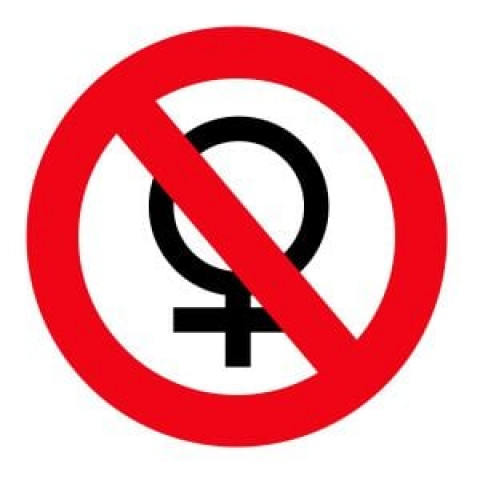Politics in Ghotki: Female politicians? Not on our watch, say sardars
The upper Sindh district is a hub of political activity, but ‘sardar culture’ holds women back.

Gender inequality is widespread in Pakistan, but the political realm has seen its fair share of women leaders. In Ghotki, however, women seem to be missing from the public sphere altogether.
Despite the presence of a large number of political families, not a single female member of these powerhouses has ever been part of the national or provincial assemblies.
The legacy of women leaders from Sindh is formidable, most notably because of Benazir Bhutto’s rise to power. Ghotki however, located in upper Sindh, is notorious for its bloody tribal clashes and frequent cases of karo-kari (honour killing).
It’s not like Ghotki has a political vacuum of any kind. Almost all political parties, including Pakistan Peoples Party (PPP), Pakistan Muslim League-Nawaz (PML-N) and Pakistan Tehreek-e-Insaf (PTI) have a presence there. Ghotki is the same district where PTI held one of its largest public gatherings, and where Shah Mahmood Qureshi joined the party. Yet, not a single female political worker or member of an influential political family in the region has come forward to join the government.
According to Raja Mujeeb, a social activist who focuses on violence against women, ‘sardar culture’ poses a hurdle: “You can see two or four sardars in a district but we have 12 sardars. They dominate politics. They do not support their own women to participate in politics, then how can they encourage others? I do not see how any of them can break this barrier,” he added.
‘Traditional values’
Influential political families themselves have no qualms in admitting that they have no intention of letting their women into the public realm.
Babar Lund, a member of the PPP Sindh Council, said, “Each tribe has its own norm and values. We prefer traditional values. We can’t allow our women to break traditions that are centuries old,” he added.
Lund, who was defeated in the 2008 general elections while contesting for a provincial assembly seat, said that his party and his tribe will support any woman whose family and environment allows her to come into politics. “Yes our party manifesto highlights women empowerment but I can’t allow my family women to come in assemblies,” he added.
Sardar Ahmed Ali Pitafi’s younger brother, Abdul Sami Pitafi (from another influential family in the region) had a slightly less conventional take on the matter. Abdul Sami said his family had several graduate females, but no one was willing to join politics.
“Ours is not a traditional tribe like the others. Our women were teachers when the British ruled in the subcontinent,” Abdul Sami claimed. But, he added, in the current environment, female political participation seemed impossible. “How can a woman join a political party and contest elections when dozens of women are killed every month in the name of honour? I think a lack of education is the reason.” He added more hopefully, “I think the day will come when these outdated values will exist no more.”
A female perspective
Pakistan Muslim League-Functional (PML-F) leader and Opposition Leader in the Sindh Assembly, Nusrat Seher Abbasi, said “[Sardars] create hurdles when we raise issues regarding women. How can they endure female politicians sitting in front of them? It is so-called ‘honour’. They’ll never allow any female member to contest elections and meet with the public, or even other sardars,” she added.
The PML-F MPA also raised the issues raised by class. Female political workers who remained active at a grassroots level spent their whole lives working for the cause, but were not given a chance to represent the public in assemblies. “Tickets are given to members of influential families and even reserved seats for women are chosen from the upper class. It is not a democracy. It will not empower women in Sindh,” Abbasi said. (WITH ADDITIONAL REPORTING BY SAMEER MANDHRO IN KARACHI)
Published in The Express Tribune, November 21st, 2012.



















COMMENTS
Comments are moderated and generally will be posted if they are on-topic and not abusive.
For more information, please see our Comments FAQ